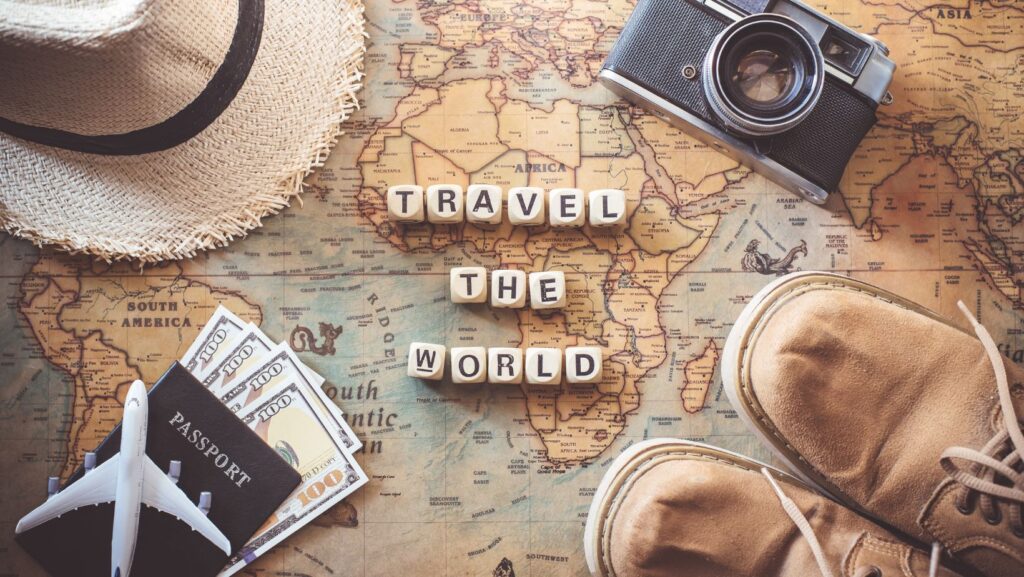Wanderlust tugs at the heartstrings of many, igniting dreams of exploring distant lands and cultures. Yet, the daunting price tag often associated with globe-trotting can dampen even the most fervent travel desires. Fear not, for traversing the world on a shoestring budget is not only possible but can also enrich the journey, making it more about the experiences than the expenses
How To Travel The World On A Budget
Traveling the world on a budget is not only possible but can also be a richer, more fulfilling experience. By prioritizing flexibility and exploring during off-peak seasons, budget travelers can discover the world without breaking the bank. This section offers practical advice on maximizing travel experiences while minimizing expenses. When planning a budget-friendly trip to the South Pacific, consider visiting Rarotonga Island, where you can enjoy stunning beaches and vibrant local culture without breaking the bank.
Embracing Flexibility and Off-Peak Seasons
 Embracing flexibility in travel plans leads to significant savings. Budget travelers benefit from adjusting their schedules to accommodate cheaper flights and accommodations. Flying mid-week, for example, often results in lower fares compared to weekend travel. Similarly, staying in destinations during shoulder seasons—the periods between peak and off-peak seasons—combines the advantage of fewer crowds with moderate prices.
Embracing flexibility in travel plans leads to significant savings. Budget travelers benefit from adjusting their schedules to accommodate cheaper flights and accommodations. Flying mid-week, for example, often results in lower fares compared to weekend travel. Similarly, staying in destinations during shoulder seasons—the periods between peak and off-peak seasons—combines the advantage of fewer crowds with moderate prices.
Off-peak travel not only stretches a budget further but also offers a more authentic experience of destinations. Hotels and airlines reduce prices to attract visitors during these slower times, allowing travelers to enjoy luxury accommodations and flights at a fraction of the cost. Additionally, visiting popular tourist spots becomes more pleasant without the peak season crowds, providing an opportunity for more meaningful interactions with locals and fellow travelers.
Planning and Saving Strategies
To travel the world on a budget, effective planning and saving strategies are crucial. They empower travelers to make the most of their experiences without breaking the bank. Emphasizing the need for a calculated approach, this section delves into how travelers can efficiently allocate their resources for maximum enjoyment.
Establish a Budget
Setting a clear budget is the first step in planning a cost-effective trip. Determine the total amount available for travel, and break it down by segments such as flights, accommodations, food, and activities. This segmentation ensures that travelers can allocate funds wisely and avoid overspending in one area.
Save Smartly
Adopting smart saving habits can significantly boost a travel fund. Cutting unnecessary expenses, setting aside a portion of income directly into a travel savings account, and exploring passive income opportunities can accelerate savings growth. Each dollar saved is a step closer to discovering new destinations.
Be Flexible with Travel Dates
Flexibility with travel dates can lead to substantial savings, especially when it comes to flight and accommodation costs. Flying mid-week or during off-peak seasons can offer lower prices, making it possible to explore the world without straining the budget.
Research and Book in Advance
 Thorough research and booking in advance are key to securing the best deals. Early bookings often come with discounts, and being informed about destination costs helps in planning daily budgets. Tools like price comparison websites are invaluable for finding affordable options that align with budget constraints.
Thorough research and booking in advance are key to securing the best deals. Early bookings often come with discounts, and being informed about destination costs helps in planning daily budgets. Tools like price comparison websites are invaluable for finding affordable options that align with budget constraints.
Implementing these strategies ensures that budget travelers have a solid foundation to explore the world. By focusing on smart planning and saving, experiencing the richness of global travel becomes attainable, reinforcing the notion that world exploration on a budget is not just a dream but a reachable goal.
Food and Dining: Eating Well on a Dime
When planning how to travel the world on a budget, finding ways to eat well without overspending is crucial. Budget travelers can savor local cuisines and enjoy dining experiences that don’t break the bank by employing smart strategies. The key lies in balancing the desire to try authentic dishes with the need to manage daily expenses effectively.
Firstly, opting for street food stands and local markets over tourist-centric restaurants allows travelers to taste authentic flavors at a fraction of the cost. These venues offer the double advantage of lower prices and genuine insight into the local food culture. Additionally, cooking meals can lead to significant savings. Staying in accommodations with kitchen facilities enables travelers to prepare their food, controlling both budget and dietary preferences.

